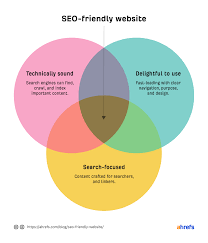In the vast landscape of website creation, the choice of a WordPress theme plays a pivotal role in determining the success and effectiveness of your online presence. With thousands of themes available, selecting the perfect one for your site can be a daunting task. However, armed with the right knowledge, you can make an informed decision that aligns with your brand, content, and user experience goals
- Define Your Website’s Purpose and Goals:
Before diving into the ocean of WordPress themes, take a step back and clearly define the purpose of your website. Understand your goals, target audience, and the type of content you plan to showcase. This foundational understanding will serve as a compass when choosing a theme that resonates with your site’s objectives.

- Responsive Design is Non-Negotiable:
In an era dominated by mobile devices, having a responsive website is no longer optional. Ensure that the WordPress theme you choose is mobile-friendly and adapts seamlessly to various screen sizes. A responsive design not only enhances the user experience but also contributes to improved search engine rankings.
- Consider Loading Speed:
Website speed is a critical factor for user satisfaction and search engine optimization. Opt for a lightweight and well-coded WordPress theme to ensure fast loading times. Slow websites can lead to high bounce rates and negatively impact your site’s performance in search engine results.
- Customization Options Matter:
Choose a theme that offers a balance between flexibility and simplicity. A good WordPress theme should provide customization options without overwhelming you with complexity. Look for themes that allow you to tweak colors, fonts, layouts, and other design elements easily.
- Prioritize SEO Friendliness:
Search Engine Optimization (SEO) is vital for your website’s visibility. A theme with clean and SEO-friendly code can contribute significantly to your site’s ranking on search engines. Look for themes that are optimized for SEO or are compatible with popular SEO plugins.

- Check Browser Compatibility:
Ensure that the theme is compatible with major web browsers. A theme that functions seamlessly across different browsers (such as Chrome, Firefox, Safari, and Edge) ensures a consistent user experience for all your visitors.
- Evaluate Support and Documentation:
A reliable support system and comprehensive documentation are crucial when selecting a WordPress theme. Check if the theme developer provides regular updates, support forums, and detailed documentation. A well-supported theme ensures that you can resolve issues promptly and keep your site secure.
- Assess Security Features:
Security is paramount for any website. Opt for a theme developed by a reputable author and regularly updated to address potential security vulnerabilities. Additionally, consider using themes from the official WordPress theme repository, as they undergo a thorough review process.
Conclusion:
Choosing the perfect WordPress theme for your site is not just about aesthetics; it’s about aligning your website with your goals and ensuring a positive user experience. By considering factors such as responsiveness, customization options, SEO-friendliness, and security, you’ll be well-equipped to make an informed decision that sets the foundation for a successful online presence. Take the time to explore, test, and choose a theme that not only reflects your brand but also enhances the overall functionality of your website.


